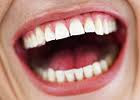“Learn to be silent. Let your quiet mind listen and absorb.”
~Pythagoras, Greek philosopher and mathematician (~ 500 B.C.)
Yesterday was the first day of a weekly meditation session at the medical school. We met in the student lounge and were led through a pre-recorded 10-minute mindfulness meditation.
This worked well because 1) it was not much time out of people’s busy days (about 20 minutes), and 2) not much organization was necessary (all we needed was a recorded meditation on a computer with speaker).
Sitting quietly in a room with people is something we rarely get to experience these days. We walk with our ipods, we turn on the tv at home, our phones are constantly attached to us awaiting the next text or phone call.
One of the things I love most about practicing mysore-style Ashtanga yoga is the silent sharing of space with people. Usually, we actively avoid this space, as we constantly try to fill silences with chatter or background noise. But there’s a lot we can learn and share in silence, too.
Check out this short video of the beautiful silence in an Ashtanga mysore class (from Richard Freeman's 2009 Teacher Intensive):
Pythagoras reminds us of the importance of this silent space. We need it to listen, to absorb, to think, to create. Schools and hospitals are perfect places to provide this… and I can’t wait for the day when the hospital I work/teach at has a morning mysore program!




